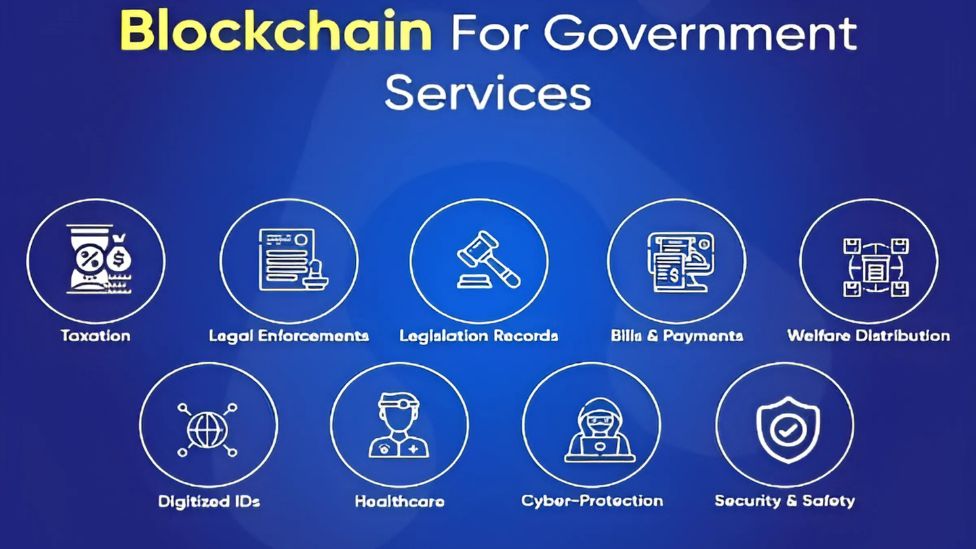Around the world, blockchain technology is transforming a number of industries, and Gulf governments are leading the charge in implementing this breakthrough for public services. Blockchain’s decentralised, transparent, and secure features have enormous potential to improve security, expedite government processes, and offer citizens more effective services. Here’s a look at how the Gulf countries are using blockchain to revolutionise public service.
Authentication and Digital Identity Services
In the Gulf, digital identity and authentication is one of the most important uses of blockchain technology. Blockchain-based digital IDs are being implemented by governments in nations like Bahrain and the United Arab Emirates to enable citizens and residents to safely access a variety of governmental services. Multiple physical kinds of documentation are no longer required, which streamlines procedures like obtaining healthcare services, applying for permits, and renewing licenses.
Blockchain technology guarantees the security and immutability of personal data by offering a visible audit trail for each transaction. As a result, there is less chance of identity theft and consumers will have more privacy.
Improving Openness and Decreased Theft in Public Sectors
One of the most praised aspects of blockchain technology is the transparency it offers. It enables Gulf governments to produce tamper-proof records for contracts, transactions, and official documents in the public sector. Blockchain is being used by nations like Saudi Arabia to cut down on fraud and corruption in public procurement, welfare distribution, and land registration, among other areas.
Blockchain contributes to the development of trust between the people and their government by guaranteeing that all transactions are forever documented on a decentralised ledger. This openness guarantees the effective use of public funds and lowers the possibility of fraud.
Smart Contracts: Simplifying Government Transactions
The smart contract features of blockchain are also being used by Gulf governments to automate and simplify a variety of agreements and transactions. Self-executing contracts, or smart contracts, have their terms encoded directly into the code. The contract automatically executes without the need for middlemen once certain requirements are satisfied.
For instance, the government of Dubai has been attempting to incorporate smart contracts into real estate transactions in order to expedite operations like property transfers and lessen the need for paper-based processes. This guarantees reliable contract execution, streamlines bureaucracy, and increases efficiency.
Blockchain Technology for Safe Data Exchange Amongst Government Entities
An essential component of effective governance is inter-agency data sharing, and blockchain offers a safe environment for this to happen. Governments in the Gulf are putting blockchain technology to use to safely transfer data across different governmental agencies, guaranteeing that it is correct, current, and available to authorised persons only.
A blockchain-based medical record sharing system has been implemented in the United Arab Emirates by the Dubai Health Authority. By ensuring that patient data is precise, current, and readily available, this lowers the possibility of medical treatment errors and enhances the quality of healthcare.
Enhanced Public Records and Document Administration
The management of public data, including birth certificates, marriage licenses, and company registrations, is being improved through the use of blockchain technology. Gulf governments are able to guarantee that these records are unchangeable, easily accessible, and shielded from manipulation by keeping them on a blockchain.
Bahrain, for example, has been investigating blockchain-based public records management solutions that enable users to safely and swiftly get official papers. This enhances public service delivery while lessening the administrative load on government agencies.
Blockchain Technology for Election Systems
The creation of safe digital voting systems is another fascinating use of blockchain in Gulf nations. By ensuring voting process integrity and transparency through blockchain technology, election results can be almost completely unaffected by manipulation. Future election voting could be safe and transparent thanks to blockchain technology, as demonstrated by nations such as the United Arab Emirates.
Voter record accuracy and real-time vote counting are two potential benefits of blockchain voting systems. This reduces the need for manual vote counting and verification, increases voter confidence, and streamlines the electoral process.




























